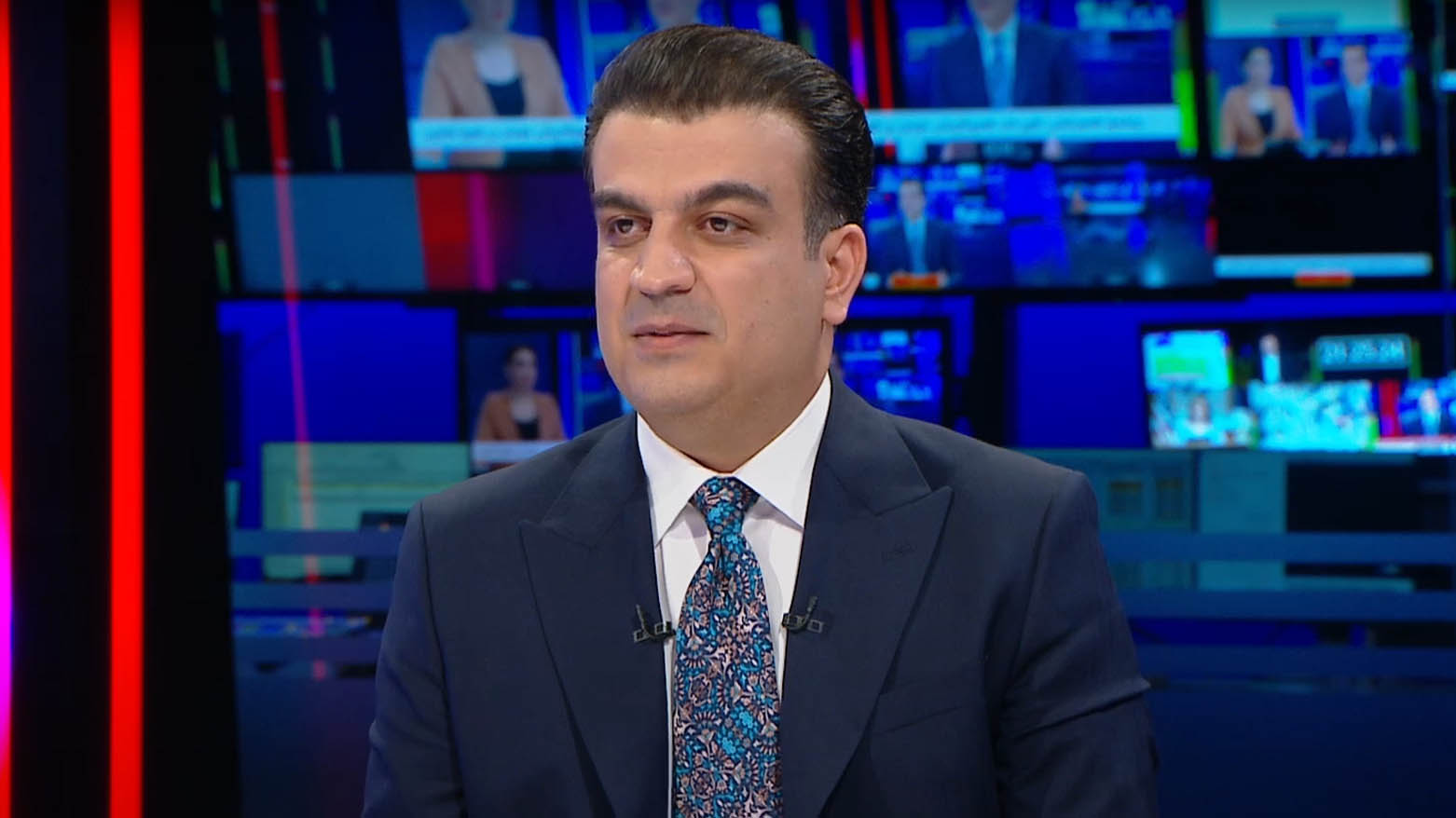KRG Spokesperson Warns of High-Level Action If Baghdad Fails to Send Salaries
On the pressing issue of public sector salaries for May, Hawramani issued a clear warning: “If Baghdad fails to send the salaries before Eid, the Kurdish leadership will take its own course of action.”

ERBIL (Kurdistan24) — The spokesperson for the Kurdistan Regional Government (KRG) has condemned the Iraqi federal government for consistently breaching constitutional commitments and undermining the Kurdistan Region’s financial rights, warning of potential high-level political decisions if May salaries are not paid before the Eid holiday.
In an exclusive interview with Kurdistan24, Thursday evening, KRG Spokesperson Peshawa Hawramani sharply criticized Baghdad’s continued withholding of salaries and breach of previous agreements. “Iraq does not respect its commitments and continues to violate the Constitution,” he said, describing Baghdad’s recent statement from the Ministry of Finance opposing salary disbursement to the Region as nothing new, but part of a long-standing pattern of unjust pressure on Kurdistan’s citizens.
Hawramani stressed that this policy reflects Baghdad’s lack of faith in Iraq’s federal system. “The Ministry of Finance is operating on political impulse, not constitutional duty,” he said, noting that the letter it issued shows the federal ministry does not uphold the constitutional rights of the Kurdistan Region.
He emphasized Prime Minister Masrour Barzani’s efforts since taking office, recalling his pledge to visit Baghdad personally to resolve disputes. “Despite political and economic challenges, Prime Minister Barzani has always stood with the people. He remains committed to finding solutions.”
The KRG spokesperson condemned the Iraqi government’s actions as both “pressure tactics” and “a direct infringement on the Region’s constitutional rights.” He added that Baghdad has persistently failed to honor agreements and memoranda of understanding signed with the KRG, often disregarding shared governance in favor of unilateral decision-making.
“If this policy of financial strangulation continues,” Hawramani warned, “withholding salaries cannot be answered by merely withdrawing Kurdish representatives from Baghdad. The Kurdistan Region’s political leadership will make a decisive and firm response.”
Addressing broader political dynamics, Hawramani asserted that Iraq no longer truly believes in federalism. “What remains is only the name. There is no real implementation of a federal system,” he said, adding that Baghdad's decisions are clearly aimed at weakening the Kurdistan Region.
Regarding the latest round of negotiations between Erbil and Baghdad, he stated that high-level political talks have begun with the federal government to find fundamental solutions to the ongoing issues. “The Kurdistan Region’s leadership is acting with full seriousness,” he said.
On the pressing issue of public sector salaries for May, Hawramani issued a clear warning: “If Baghdad fails to send the salaries before Eid, the Kurdish leadership will take its own course of action.”
He concluded by expressing optimism over recent unity among Kurdish parliamentary blocs, who jointly issued a unified message of solidarity. “This unified stance is our strongest card against the injustices inflicted upon the Kurdistan Region,” he said.
The ongoing financial standoff between Erbil and Baghdad is not merely a budgetary dispute—it represents a deeper, systemic injustice faced by the Kurdistan Region within Iraq’s so-called federal framework. Since the early 2010s, Baghdad has persistently withheld or delayed the Kurdistan Region’s rightful share of the federal budget, often using financial pressure as a political tool. This has included attempts to strip the Region of its constitutional right to manage its own natural resources, particularly its oil revenues.
Despite various agreements reached over the years, Baghdad has routinely violated them, undermining trust and threatening the livelihoods of hundreds of thousands of Kurdish public servants. Rather than honoring its obligations, the federal government has increasingly imposed punitive measures—such as requiring central approval for disbursing regional salaries—amounting to a clear encroachment on the Kurdistan Region’s autonomy.
These pressures escalated dangerously in 2023 and 2024 with the passage of a federal budget law that effectively weaponized state finances against the Region. Kurdish leaders have repeatedly called out Baghdad’s constitutional breaches and warned that continued aggression will compel the Kurdistan Regional Government (KRG) to consider bold, unilateral steps in defense of its people.
As the Eid holiday nears, Baghdad’s continued failure to release salaries has heightened tensions once again, pushing the Region toward a potential breaking point. If this trend of economic coercion persists, it could provoke a decisive shift in the political dynamics between Erbil and Baghdad—one with long-term implications for Iraq’s unity and stability.